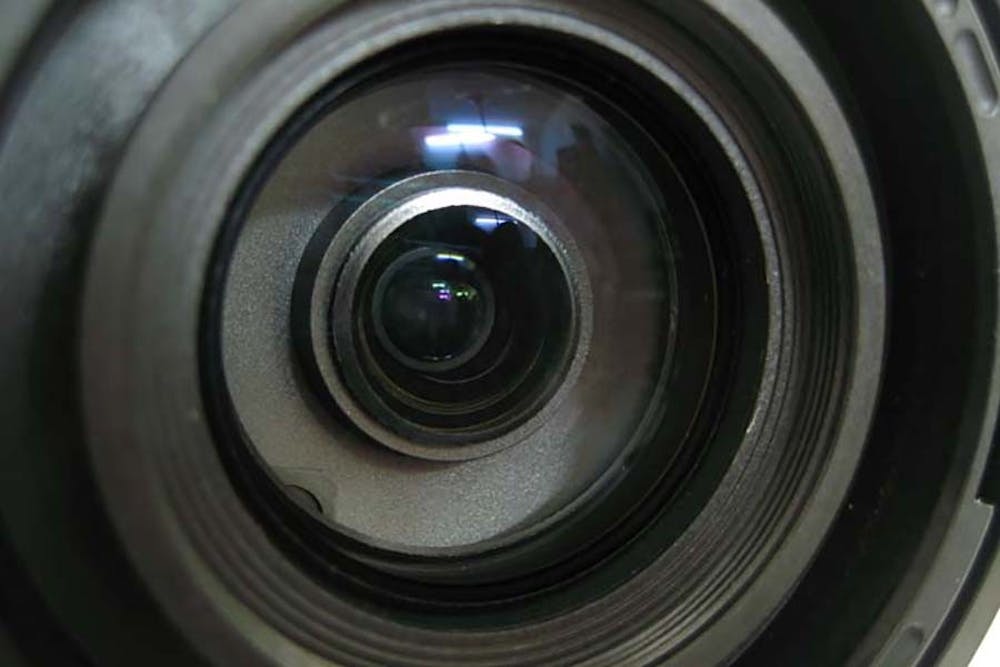By Britton Perelman, Staff Writer
Told from two different perspectives, "Gone Girl," the film based on the New York Times bestselling novel of the same name, is a psychological drama about the difficulties of marriage.
On the day of their five-year wedding anniversary, Nick Dunne (Ben Affleck) comes home to find his wife Amy (Rosamund Pike) is missing. In the weeks that follow, Nick goes from being the unknown owner of a Missouri bar to the most hated man in the country. Everyone seems to think that Nick killed his wife, but a twisted treasure hunt of an investigation proves that no one could ever know the whole truth.
Gillian Flynn adapted the novel herself, something most authors are not given the chance to do when their work becomes a movie. That simple fact made "Gone Girl" one of the most faithful adaptations I've seen. Flynn was able to retain the core of the novel, both plot-wise and emotionally, and expertly cut the narrative prose that comprised her 400-plus page drama.
The actors, both lead and supporting, were perfectly cast. When I originally heard that Ben Affleck was chosen for Nick, I was skeptical. I didn't know if he had what it took to portray the emotionally complex, yet silent and brooding character. My doubts were assuaged as soon as I saw the trailer over the summer. The image of him standing next to his missing wife's picture, smiling for the cameras is even more twisted to see on screen than it was to read and Affleck does an excellent job defending his murder allegation but not quite being convincing enough. Even better than Affleck was his on-screen wife, Rosamund Pike, who was absolutely phenomenal as Amy Dunne. Pike embodied her character in every way, able to command scenes with only her husky voice or haunting eyes. They are perfection as the complicated, borderline sociopathic, couple.
The story itself is quite possibly more absorbing on screen. David Fincher's directorial abilities are evident in the outstanding performances by, not only main characters, but supporting ones as well, including Neil Patrick Harris as Desi Collings, Carrie Coon as Margo Dunne and Kim Dickens as Detective Rhonda Boney. Every cinematic element, from the shots themselves to the music choice, is precisely chosen. The pace of the film mirrors the pace of the novel, with the big reveals happening at just the right times over the course of the two and a half hour screen time. I was particularly impressed with the way voice-over narration is used to help tell both sides of the story. We are taken back and forth between the present, where Nick is the center of a murder investigation mysteriously lacking a body, and the past, where Amy is alive and well through the pages of a diary documenting the seven years of their relationship. We see the downward spiral of their marriage, starting when they both lost their jobs in New York, to when they had to move to Missouri, and finally, to when it all culminates in a mysterious disappearance.
The minor qualms I had with the film weren't typical of those I usually have with book-to-movie adaptations. Instead of lamenting forgotten details or changed plot points, I found myself picking at the intricacies of the two leads that didn't line up exactly with the book. Besides that, the only issue I had was a nagging desire for the opening line to be repeated during the closing shot. Doing so would have ensured that, instead of being left with a clear feeling of disgust for only one character at the end, the audience would have felt the same for both characters. This emotional punch is, perhaps, the only thing the film lacked that the book delivered so bluntly.
"Gone Girl" is a psychological mystery that keeps everyone, including the characters, guessing until the very end.
Long after the final shot you'll find yourself thinking, about marriage, what spending your life with someone truly means and how we're all capable of destroying one another.




